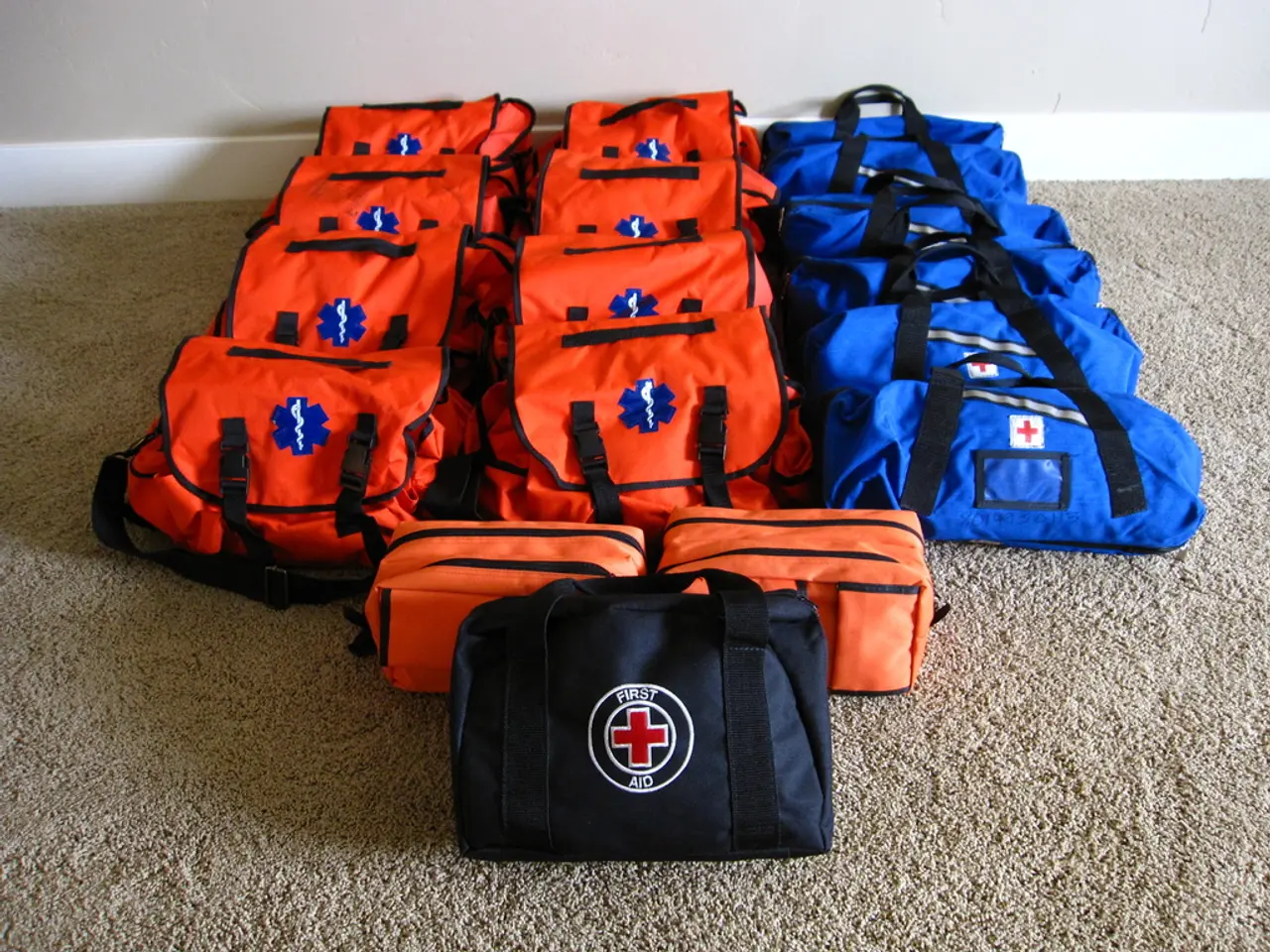Urge for Blood Donations Issued by DRC
In the midst of the ongoing pandemic, the need for blood donations in Germany remains constant and vital. On average, 15,000 blood units are required nationwide each day to support a wide range of medical treatments, including surgeries, trauma care, cancer therapy, and treatment of chronic diseases.
Blood transfusions are essential, and the demand does not diminish during pandemics or lockdowns. In fact, maintaining a stable and sufficient blood supply is critical to healthcare services. The ongoing need includes not only whole blood but also plasma, which is used for producing life-saving protein therapies.
Organizations like the German Red Cross and other blood donation services emphasize the importance of regular blood donations to avoid shortages. They implement measures to protect donors and staff, such as health screening, appointment scheduling to reduce crowding, use of personal protective equipment, and hygiene protocols, making donation during lockdown both safe and crucial.
It is worth noting that blood supplies are not indefinitely storable, requiring continuous engagement in blood donation. The focus on employees in the rescue and care services is not limited to the current pandemic situation. The rescue and care services, including the rescue service, are experiencing additional physical strain, increased risk of infection, and significant psychological burden during these times.
Gerda Hasselfeldt, the President of the German Red Cross and a former CSU politician, is calling on Germans to donate blood. Her advocacy includes the need for ongoing support for employees in the rescue and care services, highlighting the need for greater recognition of these individuals.
Hasselfeldt's call for attention to employees in the rescue and care services extends beyond the pandemic. The need for continued support and recognition of these employees is emphasized, and the importance of their work is underscored.
Blood donation during lockdown in Germany remains safe when proper precautions and screening are in place. Donors must meet legal health requirements and be fully recovered from COVID-19 if previously infected, with a recommended waiting period of at least 4 weeks after recovery confirmed by RT-qPCR tests. Safety protocols are enforced to prevent virus transmission, and blood collection organizations comply with strict standards to ensure donor and recipient safety.
In conclusion, individuals eligible to donate are encouraged to continue donating blood during lockdown periods to support healthcare needs safely. The need for blood and plasma donations in Germany is continuous and vital, and the ongoing efforts to protect donors and staff ensure that donation remains a safe and crucial practice during these challenging times.
- Through the pandemic, the science of health-and-wellness has become even more crucial in the workplace-wellness, as the German Red Cross advocates for regular blood donations to maintain a stable supply essential for a wide range of treatments, including therapies-and-treatments like cancer therapy and surgeries.
- Nutrition plays a vital role in employees' health-and-wellness, especially in the rescue and care services, who are under significant physical strain, increased risk of infection, and psychological burden during the pandemic. There is a call for greater recognition of these individuals and ongoing support to alleviate their challenges.
- While blood can't be stored indefinitely, its donation remains a continuous and vital practice during lockdown, as proper precautions and screening measures are in place to ensure donors' and recipients' safety. Eligible individuals are encouraged to donate, supporting the nation's ongoing healthcare needs.




